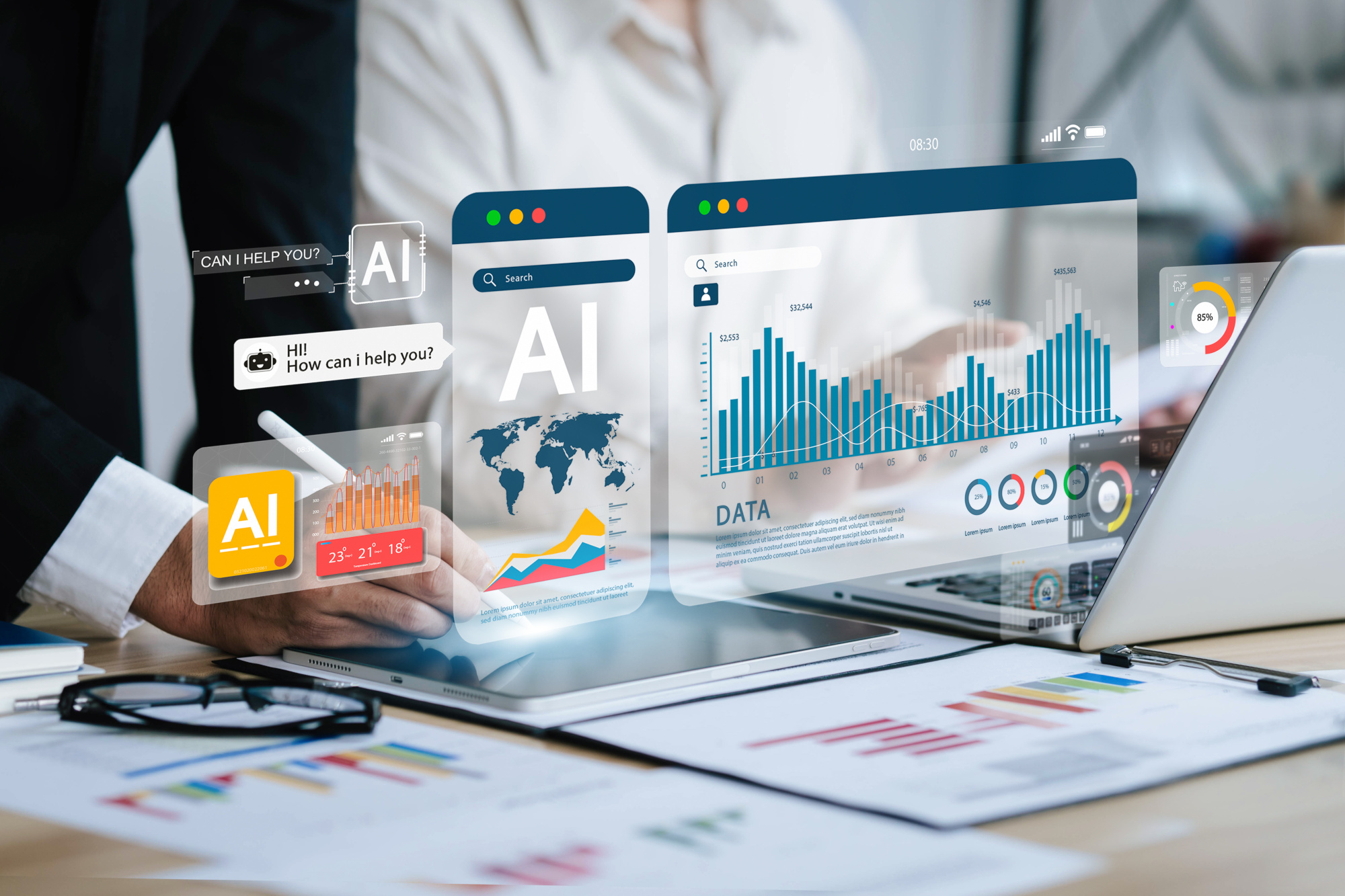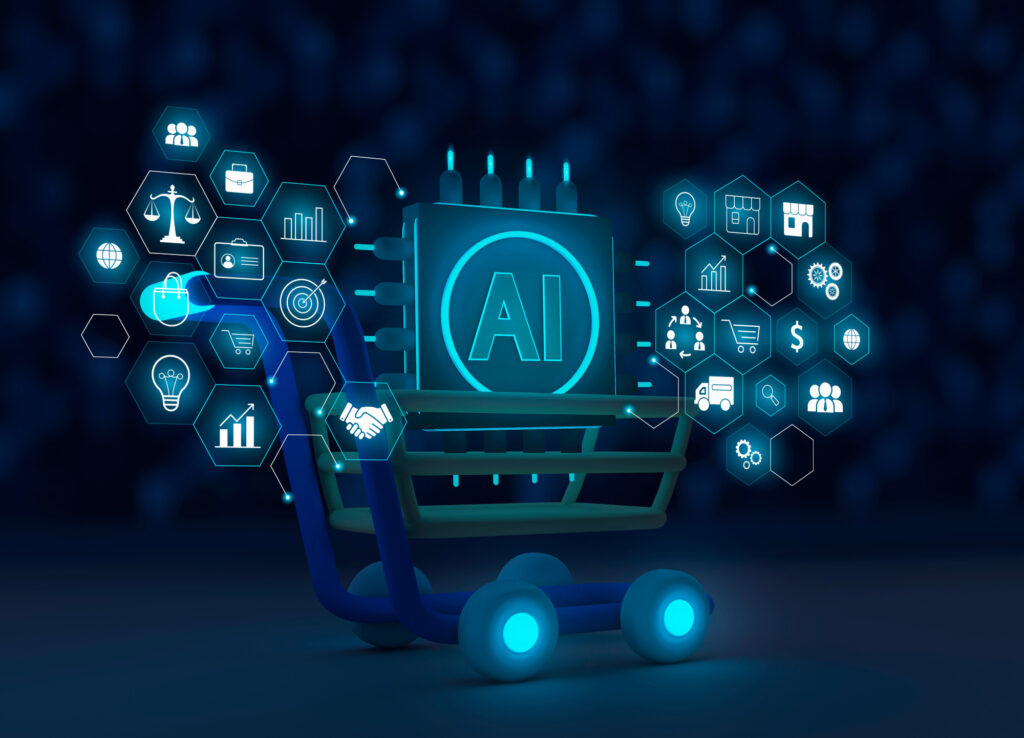AI is transforming sales and other industries. It’s improving sales planning by making it more efficient, tailored, and data-driven. How crucial is AI to sales? What are the advantages and drawbacks?

What Is AI In Sales?
AI for sales uses complex algorithms and machine learning to streamline and enhance various sales roles, making them more efficient and productive. Through the analysis of extensive data, AI systems can uncover patterns, forecast future occurrences, and offer valuable suggestions to enhance the decision-making and performance of sales teams.
What Can AI Do For Sales?
Machine Learning (ML): Computers look at past sales data to guess what will happen in the future in terms of trends, customer behavior, and sales opportunities.
Natural Language Processing (NLP): NLP helps AI systems understand and process human language, which makes it easier for them to talk to clients and do business.
Predictive Analytics: This method uses past data to guess what will happen in the future. This lets sales teams focus on leads with a high chance of happening and adjust their strategy accordingly.
Automation Tools: These make tasks like data entry and follow-ups easier to do over and over again, which boosts total productivity.
Benefits of AI in Sales
Using AI in sales has many perks that make the process more efficient and effective. Here are a few important pros:
Enhanced Lead Generation and Scoring
AI algorithms are better at finding possible leads than traditional methods because they can look through huge amounts of data. The best AI tools for sales help teams focus on the most exciting opportunities by giving leads a score based on how likely they are to turn into customers. This increases the chances of closing deals.
Personalized Customer Interactions
AI for sales helps teams give customers an experience that is very specific to them. By looking at customer data, AI can learn about their likes, dislikes, behaviors, and needs. This lets salespeople tailor their conversations and offers to be more relevant to each customer.
Improved Sales Forecasting
It’s important to have correct sales forecasts to plan strategies and allocate resources. AI-powered predictive analytics can use past sales data and market trends to make accurate guesses about what will sell. Forecasting in accounting can help businesses plan better and make smart choices.
Automation of Routine Tasks
A lot of frankly boring and time-consuming jobs can be done automatically by AI, like data entry, scheduling, and sending follow-up emails. Accounting automation is particularly useful for streamlining work processes, freeing up time for more vital tasks. Ultimately, salespeople can now focus on more important tasks, like building relationships and finishing deals because this automation has freed up their time.
Increased Sales Productivity
With the help of AI tools, sales teams can get more done. Salespeople can concentrate on closing transactions and developing relationships with customers by using AI to help identify the most important tasks and automate the less important ones.

Challenges and Considerations of Using AI
AI has a lot of benefits, but using it in sales comes with some problems and things that are best to think about now rather than when they become a problem:
Data Quality and Management
AI systems need good data to work well. It’s really important to make sure that the data is accurate, complete, and up-to-date for AI output to be successful.
Integration with Existing Systems
Integrating AI tools with existing sales and CRM systems can sometimes be a bit tricky. Businesses need to make sure that they have a smooth integration process in order to fully capitalize on the advantages of AI.
Employee Training and Adoption
Sales teams have to receive proper training on effectively using AI tools. Everyone on the team should be on board with adopting AI tools for sales and understand how valuable they can be.
Ethical Considerations
Artificial intelligence systems must be created and used responsibly. This includes safeguarding data privacy, avoiding biases in AI systems, and ensuring transparency in AI-driven outcomes, decisions, and applications.
The Future of AI in Sales
The future of AI for sales looks optimistic, with technological improvements projected to deliver even greater benefits. Here are some possible future developments:
Advanced Predictive Analytics
In the future, AI systems that use predictive analytics will be even smarter and more accurate. This will give sales teams more information to help them make choices and come up with better strategies.
Enhanced Personalization
As NLP and machine learning get better, AI will be able to connect with customers in an even more personalized way. Sales teams will have a better idea of what customers want and need, which will allow them to give them more personalized experiences that keep them interested and loyal.
Increased Automation
Automation powered by AI is always changing, and soon it will cover even more parts of the sales process. This will make it easier for sales reps to do their daily tasks, giving them more time to focus on jobs that are more important and bring more value.
AI-Driven Sales Strategy
Future AI systems will help with strategic decision-making as well as sales procedures. AI may use market trends, customer input, and competitor landscapes to generate strategic insights and suggestions.
Human-AI Collaboration
The future of AI in sales lies in how people and AI systems work together. When humans use their instincts and creativity along with AI’s data-driven insights, businesses can reach sales levels that have never been seen before.
AI in Other Business Areas
AI is improving many business areas, not just sales. AI can personalize marketing by analyzing customer data and predicting behavior. Customer service chatbots and AI-powered sales and marketing virtual assistants quickly answer questions and solve problems. AI can improve supply chain management by anticipating demand, tracking inventories, and improving operations. AI detects financial fraud, assesses risk, and provides individualized business recommendations.
We use AI at HUB to create a HUB AI financial advisor that helps people with their personalized financial planning and investment suggestions.
FAQs About AI for Sales
How does AI integrate with existing CRM systems?
You can enhance your existing CRM systems by integrating APIs and plugins that incorporate AI capabilities. These enable the seamless flow of data and enhance CRM performance by incorporating AI capabilities such as predictive analytics and personalized customer interactions.
Can AI help in upselling and cross-selling?
Yes. The top AI tools for sales can look at what customers have bought and how they have behaved in the past to find chances to upsell and cross-sell. It can suggest goods and services that fit the wants and needs of customers, which can lead to more sales.
Will AI replace salespeople?
Not at all! AI won’t replace sales employees, but it will make them better at what they do. AI does jobs that are done over and over again and require a lot of data. This frees up salespeople to focus on getting to know customers, closing deals, and building relationships. For complicated sales processes and one-on-one interactions, the human factor is still very important.
What role does AI play in sales team training?
If AI looks at a person’s past successes and figures out what they can do better, it can make training plans that are just right for them. Giving sales reps focused coaching and training tools can help them get better at what they do.
How does AI contribute to customer retention strategies?
AI analyzes customer feedback, predicts attrition, and identifies satisfaction indicators to retain customers. Customer retention and nurturing are possible with individualized interaction techniques.
Can AI help in managing sales territories and quotas?
Yes, AI can improve sales area management by looking at market data, where customers are located, and how much money they could make. It helps set reasonable goals and make sure that everyone on the team gets an equal number of sales chances.
How does AI impact sales team morale and productivity?
AI can boost the mood and productivity of sales teams by automating boring tasks, giving sales reps useful information, and freeing them up to work on more important tasks. This makes the sales team work better and be more driven.
How can small businesses benefit from AI in sales?
Small businesses can use AI to boost their sales by automating boring chores, learning from data analysis, and putting in place low-cost AI solutions that make finding new leads, keeping customers interested, and overall sales efficiency better.
What is the role of AI in enhancing customer experience?
AI improves the customer experience by giving them personalized suggestions, quick answers through chatbots, and interactions that are tailored to their needs based on data about them. There is more customer happiness and loyalty as a result.
How does AI assist in competitive analysis?
AI can look at what competitors are doing, market trends, and customer feedback to help businesses figure out how to place themselves against their rivals. This helps companies improve their plans and stay ahead in the market.
